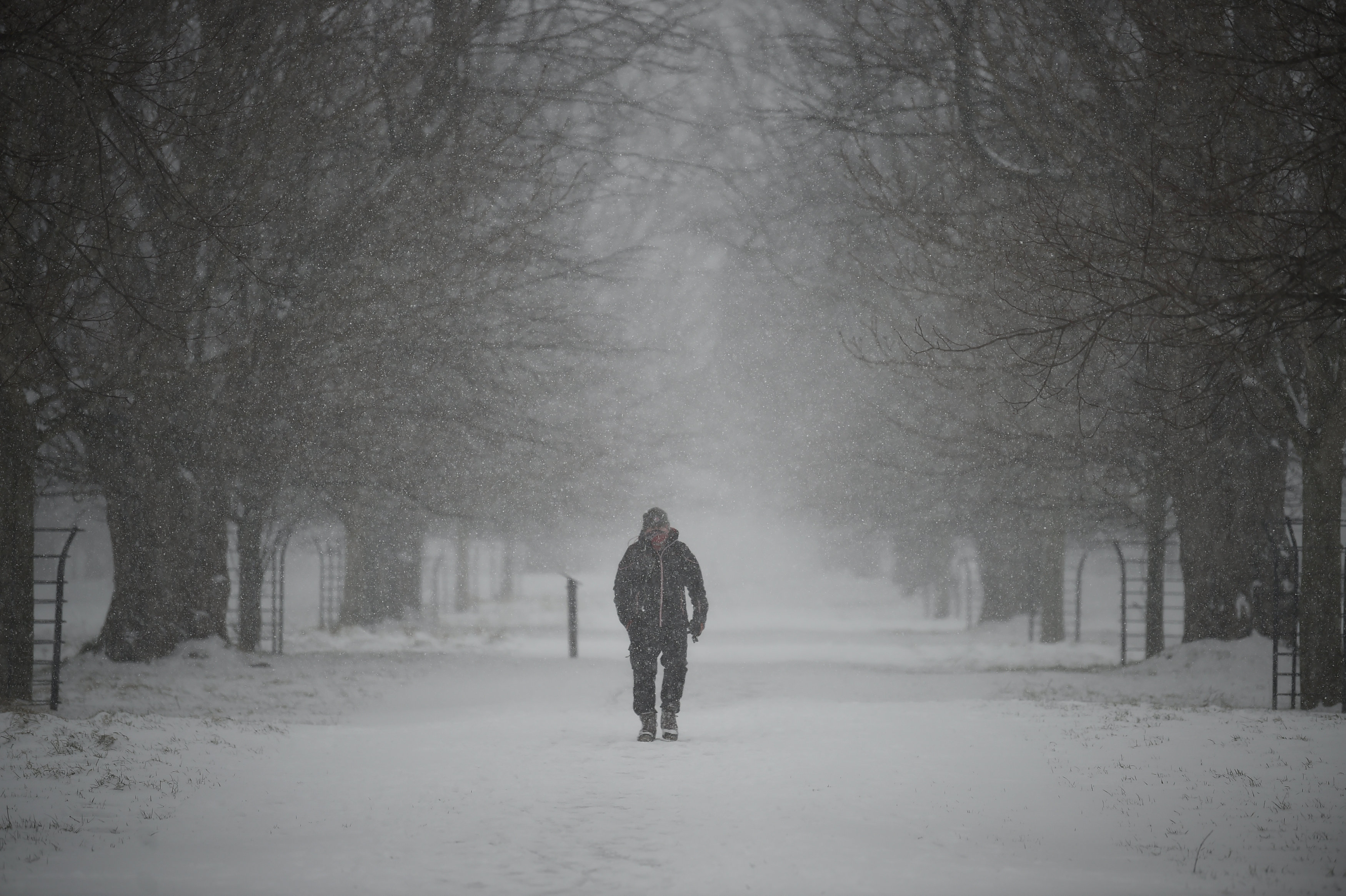
A man walks through the snow at the Phoenix Park in Dublin, Ireland, February 28, 2018. (Photo: VCG)
A severe snowstorm hit most parts of Ireland on Wednesday, leaving local resident's lives and businesses in the country seriously disrupted, reported local media.
Latest reports coming in said that over 400 flights were cancelled at the airport of the country's capital Dublin, leaving hundreds of local and foreign passengers stranded at the nation's largest airport while delays and cancellations of flights were also reported in some other parts of Ireland.
Dublin and its surrounding areas in the country's eastern coastal region, together with the southeastern part of Ireland, were the most hit areas in the snowstorm with some areas having reportedly received over 10-centimeter-deep snow on the ground in an overnight snowfall.
Heavy snow has also resulted in serious delays in the bus, tram and train services in many areas, especially the most densely populated city of Dublin whose one-million-plus population accounts for nearly one-fourth of the country's total.
Closure of roads, traffic jams and accidents were reported in many snowstorm-hit areas, but no fatal traffic accidents have been reported in the snowstorm.
Nearly all the schools were closed in Dublin and many businesses were closed or forced to close earlier than usual hours in the city.
Irish Prime Minister Leo Varadkar, in a nation-wide televised speech, urged people in the snow-hit areas to avoid all the unnecessary travels.
A national emergency coordination meeting was convened by the government on Wednesday morning, which called the concerned departments to tackle the possible problems that could arise from the unprecedented snowstorm.
Extra beds have been provided to homeless people in the snowstorm-hit areas. So far no one has died of rough sleeping in the country, said local media.
Local meteorological department has issued the highest red weather warnings for the worst-hit areas in the country's eastern and southeastern regions and said the red warnings will remain in place for the next couple of days.


